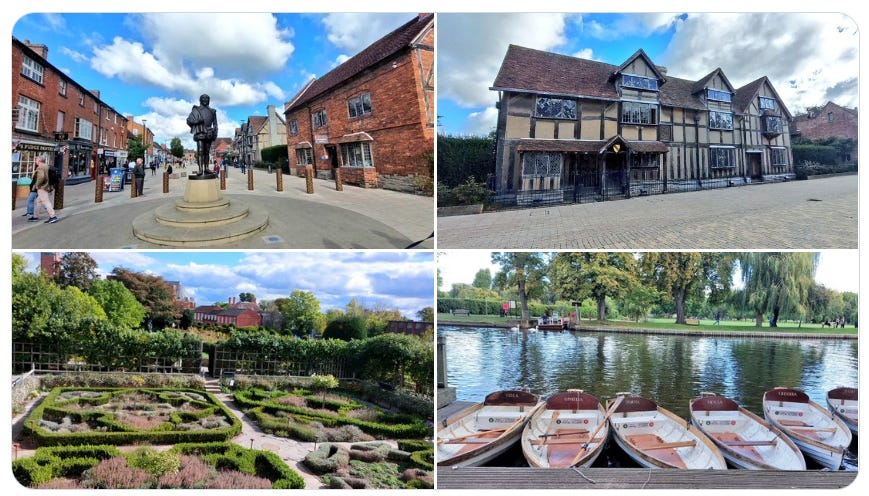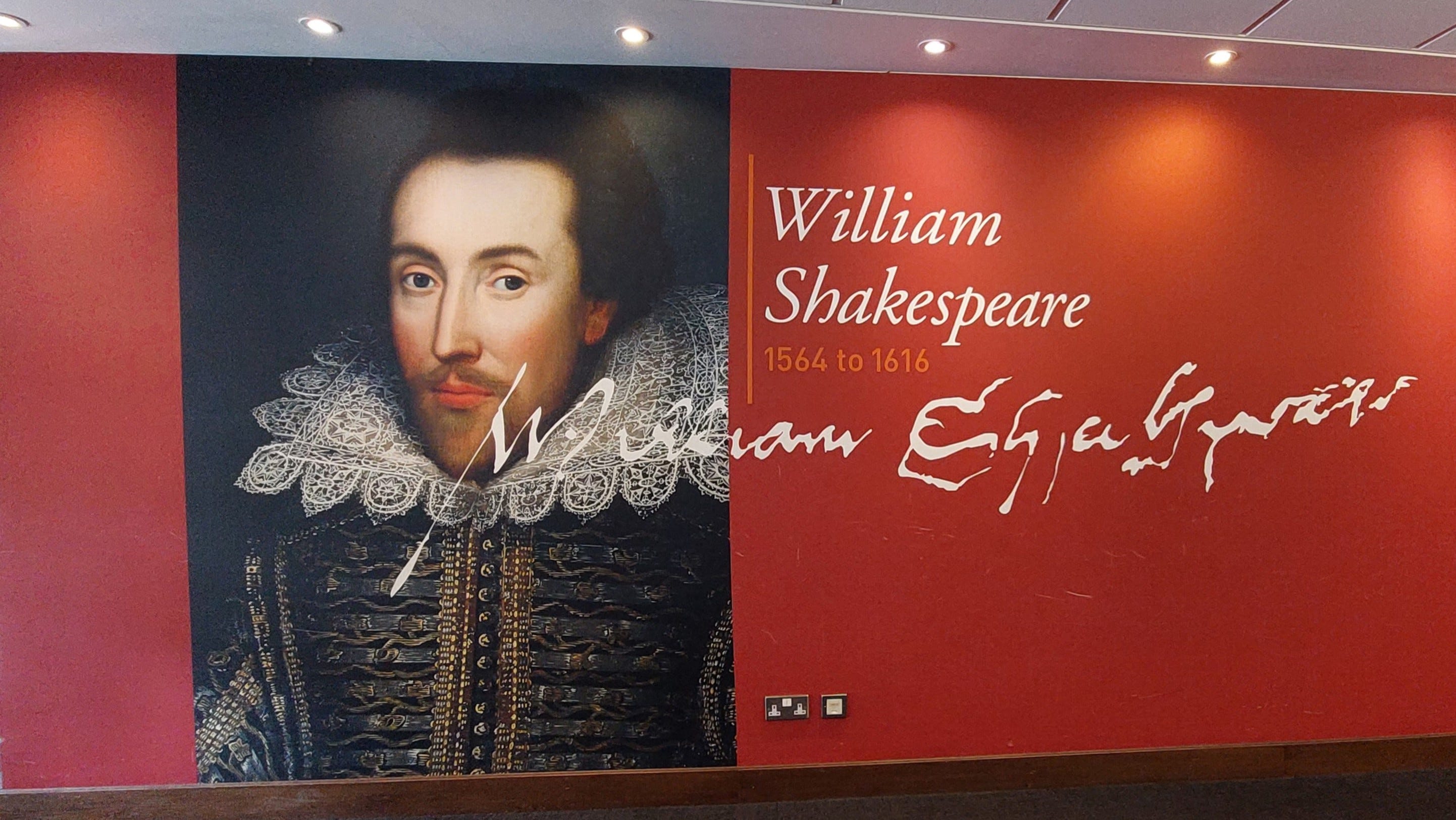What fools these mortals be!
I visited Shakespeare's hometown and it was magical

I will never understand how high school English classes managed to make Shakespeare the most torturous reading experience when he wrote bangers like this:
“Foolery, sir, does walk about the orb like the sun; it shines everywhere.”
— Twelfth Night
Back in the days of lockdown 2020 when we contracted the urge to do all of the hobbies (remember the chokehold banana bread had us in?), something possessed me to get the Complete Works of William Shakespeare. I was so determined to understand this man without the modern English notes and for some reason, I thought a giant collection of his work would do the trick.
I started with Hamlet — a play I’d been trying and failing to read since my first year of university — and I was sold. Shakespeare’s wit and shenanigans became one of my top three literary favourites so it only made sense to spend a day in his hometown as soon as I got the chance.

Stratford-upon-Avon is a market town in the West Midlands region of England and is home to Shakespeare’s Birthplace, New Place, and Anne Hathaway’s family cottage. I managed to do all three of the key sites in about four hours but you could easily spend more than a day there exploring other places like his church and school halls or watching a production from the Royal Shakespeare Company.
Walking through Shakespeare’s family homes and Anne Hathaway’s cottage is an immersive experience that’s guided by incredibly knowledgeable and passionate volunteers who talk you through the history of each room.
It was especially fascinating to learn about other writers like Charles Dickens who not only took the same pilgrimage to Shakespeare’s town but also got together to make sure his birthplace was conserved. This act of recognising and protecting an artist’s legacy really shows us what an undeniable grip Shakespeare has always had on English literary culture and beyond.

Now I know that pitching Shakespeare to a bunch of 21st-century teenagers isn’t exactly the most desirable job, but I wish I’d realised at the time what a privilege it is to engage with stories that have been read or watched by probably every English-language writer we’d consider great today.
Since gaining the confidence to read Shakespeare on my own, it’s become glaringly obvious that to translate his plays line-by-line into “modern English” is to drain them of life. Because the life, energy, and humour of Shakespeare are in the language itself. And just like any language we, mortal fools, have to practise if we want to understand.
If you’re finding any value, joy, or comfort from The Kulturalist, consider supporting my work at the button below. Every contribution helps to keep the words coming. Thank you for being here!





